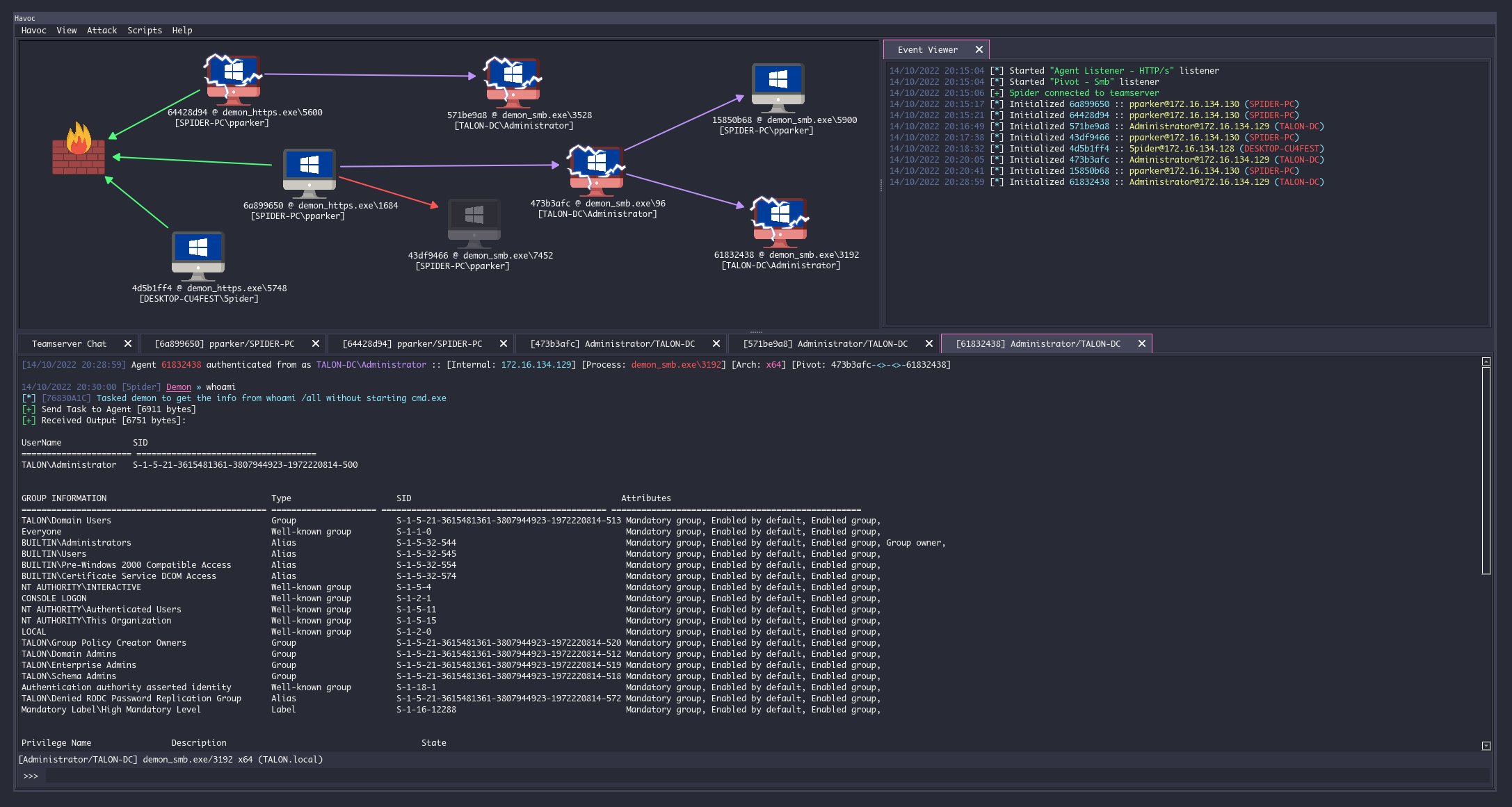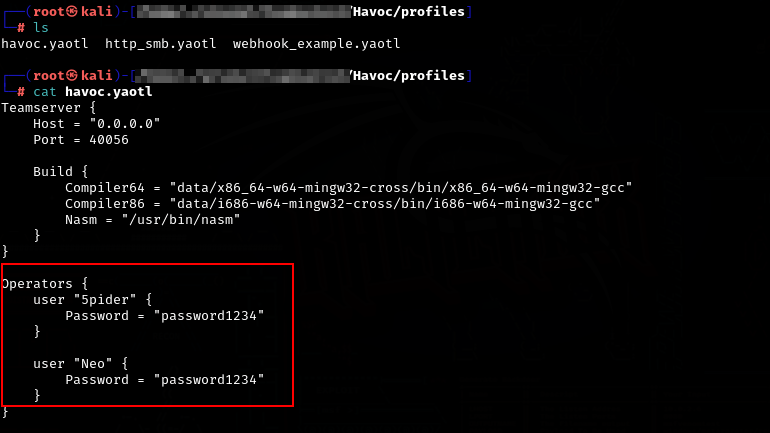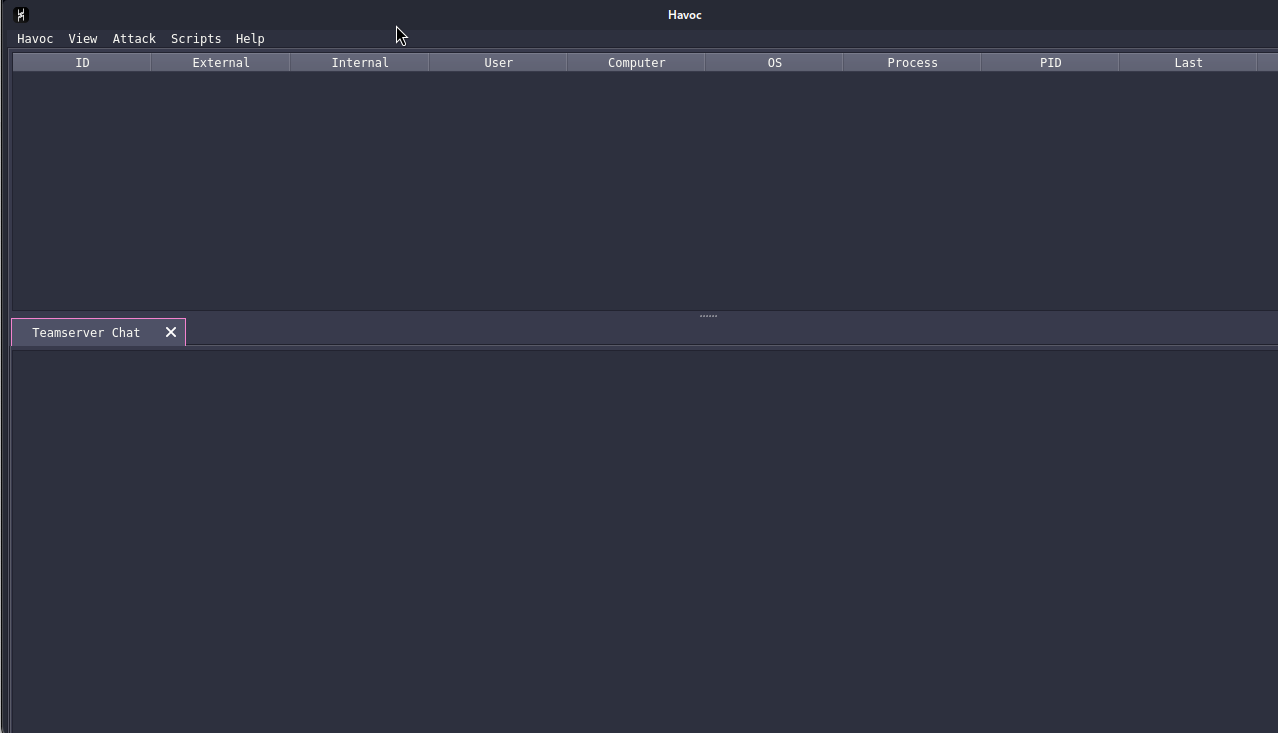Introduction
C2 frameworks, also known as command and control, enables red teamers to control and communicate with compromised systems. Havoc is a modern and malleable post-exploitation command and control framework, created by @C5pider.
Installation
Clone the Havoc Repo
Havoc source code is avalable on the github. Note: I will be installing Havoc Framework on Kali Linux for the demonstration purpose.
1
git clone https://github.com/HavocFramework/Havoc.git
Install dependencies
Install Python 3.10:
It is necessary to install python 3.10 inorder to install the Havoc. You must setup the bookwork repo for Python 3.10.
1
2
3
echo 'deb http://ftp.de.debian.org/debian bookworm main' >> /etc/apt/sources.list
sudo apt update
sudo apt install python3-dev python3.10-dev libpython3.10 libpython3.10-dev python3.10
Also you need to install below additional libraries.
1
sudo apt install -y git build-essential apt-utils cmake libfontconfig1 libglu1-mesa-dev libgtest-dev libspdlog-dev libboost-all-dev libncurses5-dev libgdbm-dev libssl-dev libreadline-dev libffi-dev libsqlite3-dev libbz2-dev mesa-common-dev qtbase5-dev qtchooser qt5-qmake qtbase5-dev-tools libqt5websockets5 libqt5websockets5-dev qtdeclarative5-dev golang-go qtbase5-dev libqt5websockets5-dev python3-dev libboost-all-dev mingw-w64 nasm
Install Mingw32
Navigate inside the teamserver directory and run the script.
1
2
cd Havoc/teamserver
./Install.sh
Install Go dependencies.
Navigate inside the teamserver directory
1
2
3
4
cd Havoc/teamserver
go mod download golang.org/x/sys
go mod download github.com/ugorji/go
cd ..
Build
Make sure you are on the base cloned directory
1
2
3
4
5
# Install server
make ts-build
# Install client
make client-build
Run
Running the teamserver.
All files created during interaction with the Teamserver are stored within the /Havoc/data/* folder.
1
2
3
4
5
6
7
8
9
10
11
12
13
14
15
16
17
18
19
20
21
22
23
24
25
./havoc server --default
_______ _______ _______
│\ /│( ___ )│\ /│( ___ )( ____ \
│ ) ( ││ ( ) ││ ) ( ││ ( ) ││ ( \/
│ (___) ││ (___) ││ │ │ ││ │ │ ││ │
│ ___ ││ ___ │( ( ) )│ │ │ ││ │
│ ( ) ││ ( ) │ \ \_/ / │ │ │ ││ │
│ ) ( ││ ) ( │ \ / │ (___) ││ (____/\
│/ \││/ \│ \_/ (_______)(_______/
pwn and elevate until it's done
[INFO] Havoc Framework [Version: 0.7] [CodeName: Bites The Dust]
[INFO] Use default profile
[INFO] Build:
- Compiler x64 : /usr/bin/x86_64-w64-mingw32-gcc
- Compiler x86 : /usr/bin/i686-w64-mingw32-gcc
- Nasm : /usr/bin/nasm
[INFO] Time: 21/01/2024 06:59:07
[INFO] Teamserver logs saved under: data/loot/2024.01.21._06:59:07
[INFO] Starting Teamserver on wss://0.0.0.0:40056
[INFO] Opens existing database: data/teamserver.db
[INFO] Starting 1 listeners from last session
[INFO] Started "http" listener: https://*.*.*.*:443
[INFO] Restored 1 agents from last session
Running the client
1
./havoc client
A TeamServer prompt will be opened after running the client as below: 
- The Name field can be any profile name.
- In the fields, Host and Port should contain the teamserver host address/domain and port.
- The fields, User and Password should contain the username and password specified in your Yaotl profile. You can change the credentials by navigating inside the profile directory.
After successfull connection, we can have the clean and awesome Havoc C2 framework infront of us.


